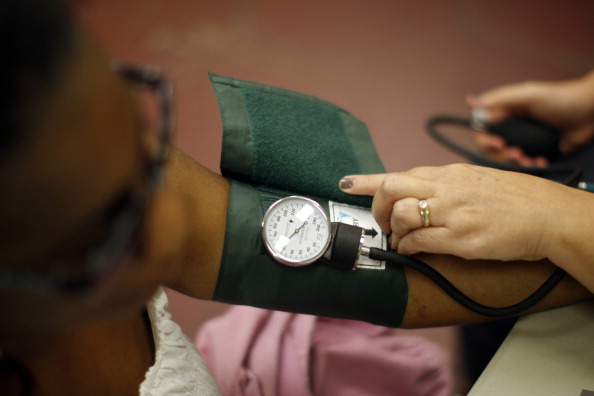California’s public schools receive more than $400 million each year to provide mental health services to students, but at least 580,000 kids in the state have been left without help, a new report finds.
The perceived steep cost of health insurance deterred nearly half of Californians who went without coverage in 2014, a new study reports.
Eva, an undocumented immigrant and single mother in Bakersfield who harvests grapes to support her three children, suffered from daily hemorrhaging for eight months after delivering her third child. A physician at a federally-funded community clinic sent her to the hospital to get a biopsy for a uterine growth. But despite many trips to the emergency room to treat her symptoms, she was told that she would have to pay $450 before they would perform a biopsy.
The “Sandwich Generation” has it tough. Not only are these Baby Boom parents raising kids, they’re also caring for aging relatives who demand more of their time: dressing, feeding or transporting them to doctor’s appointments.
Major Central Valley hospitals don’t report enough data to determine whether they earn the extensive tax breaks they get for operating as nonprofits, according to a study released Monday. “These hospitals get a whopping tax break because they’re supposed to benefit the community as not-for-profits, but the data they report is so sketchy that we truly don’t know if they earn those tax breaks,” said
California is facing a public health crisis – children’s exposure to trauma and chronic adversity. A growing body of research shows that exposure to trauma harms children’s developing brains so much that the effects show up decades later in the form of poor health and the perpetuation of violence and poverty.
Since Jan. 1, thousands more kids in California have had improved access to breakfast and lunch at school for little or no cost. That’s when a new law took effect requiring schools that serve subsidized federally funded meals and post the application forms online to have those applications available in multiple languages. The new law will make it easier for non-English speaking parents to apply for meals for eligible kids.
For aging Americans, the fear of dementia now exceeds the fear of cancer. This fact has been a spark for something new to the world of aging: dementia friendly communities.
When Irene Gomez meets with young undocumented families as the director of an outreach program for migrant farmworkers in Oxnard, she finds that many are struggling to get adequate medical care for their children.
By Daniel Weintraub Major surgery or a stay in the hospital can be stressful enough, even when you have insurance. But Californians with health care coverage who seek treatment at a clinic or hospital that is in their insurance plan’s network must often also deal with the anguish caused by huge unexpected costs. The culprits: physicians who are part of the hospital treatment team but








